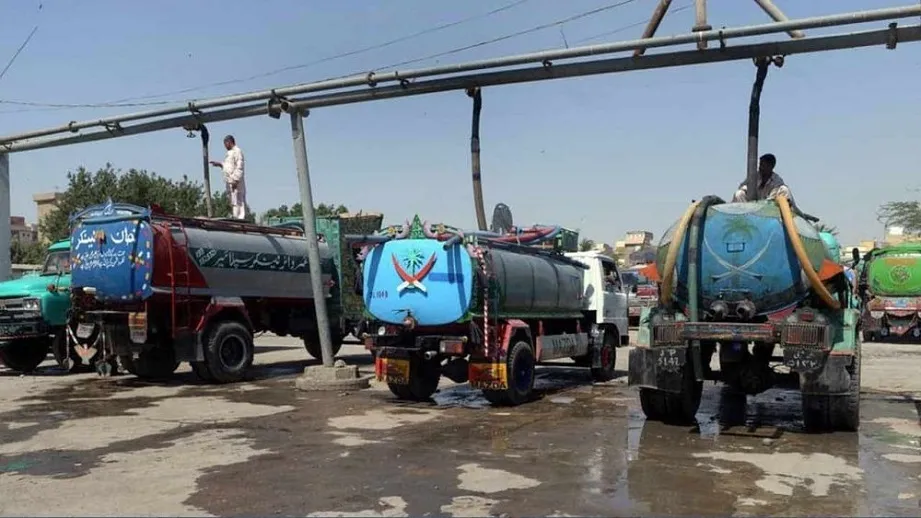ISLAMABAD: Islamabad is facing the brink of an unprecedented water crisis, with the Capital Development Authority (CDA) on the verge of a complete system collapse.
According to highly placed sources, the city’s entire water supply infrastructure is teetering on the edge of failure due to severe financial mismanagement, mounting debts, and neglected maintenance.
The CDA’s Water Supply Directorate has less than a month’s worth of chlorine stock remaining.
Chlorination is vital for ensuring that the city’s drinking water is safe, but the CDA’s failure to clear last year’s dues for a chlorine supply tender has led contractors to stop chlorinating the water, putting the entire population at risk of a major public health crisis.
If emergency procurement measures are not implemented urgently, the city could face a complete suspension of water supply by next month.
Collapsing Infrastructure and Financial Crisis
In addition to the chlorine shortage, Islamabad’s water infrastructure is in dire disrepair.
Out of the 300 tube wells that were once operational, 205 are now out of service, many permanently.
The CDA has defaulted on over Rs. 100 million in maintenance payments, leaving no funds to address the issue.
The water tanker fleet, which once served as a vital resource during peak summer shortages, has collapsed. Of the 32 tankers, only 7 remain functional, and two are exclusively reserved for VIP complaints.
Despite receiving over 1,000 tanker requests daily, the CDA lacks both the necessary machinery and funding to meet demand.
Read More: CDA Chief Reviews PSL 10 Security and City Readiness in High-Level Meeting
Additionally, contractors who have not been paid for previous work, totaling over Rs. 50 million, have ceased responding to service requests.
Impact on Residents
The crisis is already affecting daily life in several sectors of Islamabad, including I-8, I-9, I-10, I-14, F-6, F-7, F-8, F-10, G-6, G-7, G-8, G-9, G-10, G-11, as well as Model Village, Margalla Town, Humak Town, and Rawal Town.
Many neighborhoods are now receiving water supply only once every three days, severely impacting residents and businesses.
Lack of Emergency Measures and Federal Intervention
CDA officials, speaking anonymously, have admitted that short-term contracts with suppliers and a lack of emergency funding have made it increasingly difficult to tackle the growing crisis.
Without immediate federal intervention, Islamabad could be facing an urban-scale humanitarian emergency, exacerbated by bureaucratic delays and ongoing financial defaults.
The failure to address the issue at the governmental level raises serious questions about the long-term sustainability of the city’s water infrastructure and public health.
Also Read: Islamabad’s Land Records to Go Fully Digital as CDA Launches Rs 652 Million Green Revolution
With no immediate solutions on the horizon, the situation remains critical and requires urgent action from both the federal government and CDA authorities to prevent a full-scale collapse of the water supply system.
